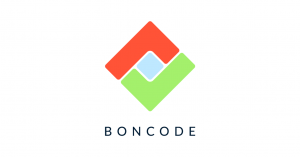Software engineers are under constant pressure to continuously deliver code to meet business objectives. Speed is of the essence. For that reason, there’s always a trade-off between business functionality and technical debt. But is it enough for developers to deliver high-quality code?
If custom-coded software is the beating heart of your business, the answer is almost certainly ‘no’. From a risk management perspective, devs not only need to deliver quality code, they also need a way to evidence their efforts. Here’s why and how.
Protect a vital corporate asset
Most modern organizations rely on custom-coded software systems to perform their core activities. But if the software fails, business halts. Growing dependence on custom software has raised its stock, making it a vital corporate asset that requires adequate risk management and ongoing maintenance activity.
For that reason, it’s remarkable that many decision-makers don’t have tangible evidence of software quality. Instead, they rely on user feedback, satisfaction surveys, complaints, and the number of helpdesk reports to help them make judgments about code quality.
But taking this reactive approach to software quality is dangerous for two key reasons. Firstly, results from the past don’t guarantee future stability. Secondly, it’s based on experience and not rooted in empirical evidence. In other words, it’s not based on the source code itself.
Provide proof of software quality
User feedback is not a reliable or scientific way of forecasting the maintainability and security of business-critical systems. What’s needed is a form of warranty, a way of protecting against future problems by identifying what could go wrong at code level, and predetermining mitigating actions.
Wherever they’re located – in-house, onshore, nearshore, or offshore – giving software managers and engineers the tools to validate software quality empowers them to evidence their efforts. This deeper level of traceability and accountability makes it much easier to have those difficult conversations when something goes wrong, and a finger is pointed at code quality.
BonCode’s tool-based consultancy is a convenient way for organizations to not only take control but also surface fact-based insights into software quality. It’s comparable to a financial audit, where a trusted, external expert is brought in to conduct an independent report and make recommendations.
Our findings enable you to steer software engineers toward coding issues so that they can refactor code to improve reliability, security, and performance. We don’t benefit from finding faults with your software quality. In fact, many of our clients use us as a tool to validate and maintain high-quality code.
BonCode’s tools for software assessment and monitoring measure and examine every line of code, enabling software engineers to pinpoint a problem and take corrective action before something more serious goes wrong.
To explore our powerful solutions for evidencing software quality, and deriving actionable insights for making improvements, book a demo with a quality expert from BonCode.





